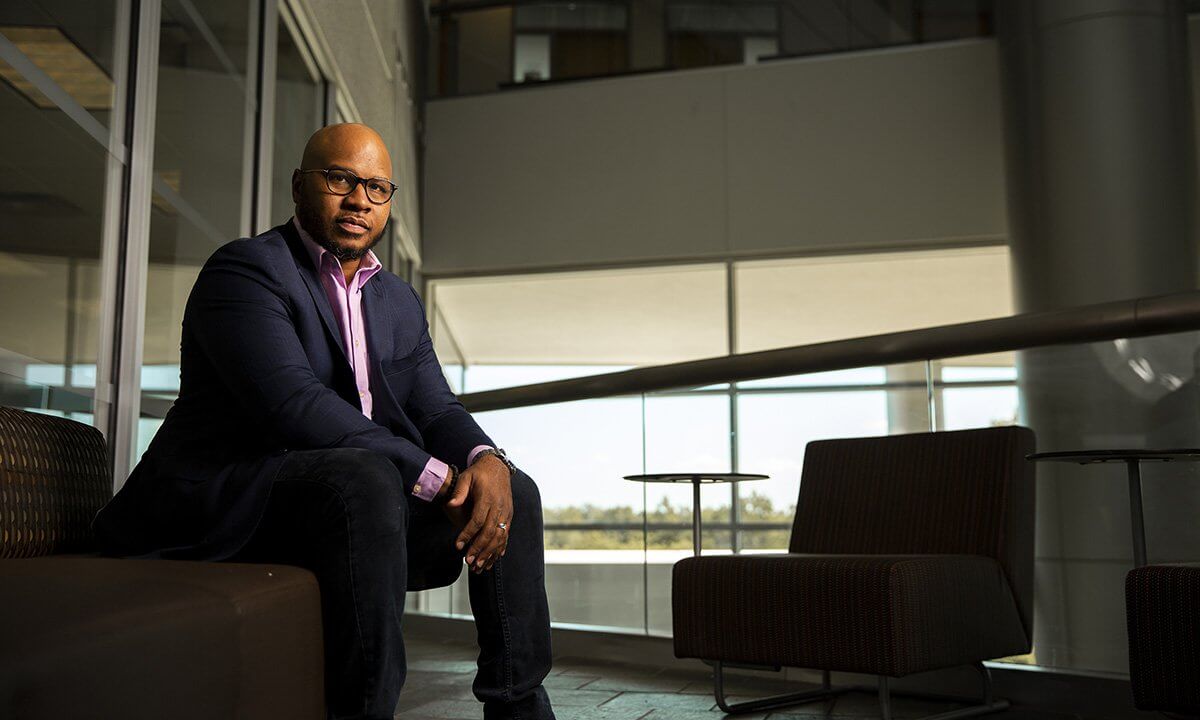SEHS Professor Receives Prestigious SABA Public Awareness Grant
Dr. Chaturi Edrisinha’s newest project — virtual reality training vignettes to promote safe interactions between law enforcement and individuals impacted by autism — could be a game changer.
Dr. Chaturi Edrisinha, associate professor of human development and child studies at Oakland University, has been awarded a Public Awareness Grant from the Society for the Advancement of Behavior Analysis (SABA) for developing a project that could refine the dynamic between police and individuals impacted by autism spectrum disorders (ASD).
Considered the most prestigious international award given by the Association for Behavior Analysis, the $2,500 award is annually distributed to up to four different projects that utilize behavior analytic solutions to address significant issues within the field of behavior science. The grant will help fund a series of virtual reality (VR) vignettes designed by Edrisinha to effectively train police officers to handle situations involving individuals on the autism spectrum or with other communicative impairments.
According to SABA President Peter Killeen, Edrisinha’s research “offers an innovative approach to a socially significant issue, and the quality of [her] design and measures speaks to the strength of [her] behavior analytic repertoire.”
As part of what Edrisinha joked is a “really prestigious nerd award,” grantees are recognized and profiled in Inside Behavior Analysis, an academic journal with international readership. While she is “so psyched” for the opportunity to celebrate her work on a global scale, Edrisinha said she is even more excited about the opportunities her work could create for police and individuals impacted by autism.
“If you are on the spectrum and you get pulled over, then how does the officer quickly recognize the core symptoms of autism and then de-escalate the situation so that it doesn’t become a really difficult situation for both parties?” she said. “I kept reflecting on that and thinking, ‘I need to be able to do something.’”
In some ways, Edrisinha said the idea was a continuation of her previous work, namely the Genius-to-Genius (G2G) program, a peer-based initiative that she established to support OU students with autism in their transition to college and development of social skills and professional opportunities. One of the program’s biggest undertakings was assisting some of its members with obtaining a driver’s license, a significantly more difficult process for individuals with autism.
Subsequently, Edrisinha collaborated with the Xavier DeGroat Autism Foundation to advocate for legislation that would ease this process across the state of Michigan. Their efforts were instrumental in passing House Bill 5541 and Senate Bills 278 and 279, which amend the Michigan Vehicle Code so individuals with autism and communication impairments can choose to have a communication impediment designation associated with their driving record.
“Now, when you go to the Secretary of State and you sign up for your driver’s license, you can self-disclose that you have autism … or if you have a communication impairment,” Edrisinha said. “So, when the cops pull you over and they run your plates, that information comes up and that gives them a heads up.”
Edrisinha further explained that common signs of autism, such as difficulties making eye contact, are often assessed as threatening behaviors by law enforcement and can lead to issues such as misinformed arrests. She used the experience of being pulled over by a police officer as an example, noting that, while it can be intimidating for anyone, it is a particularly challenging situation for those with communicative impairments to navigate.
“I couldn’t think coherently because I was so stressed out,” she said of her first time being pulled over after moving to the United States. “And I thought, ‘Well, what if I had autism? What are these young people with autism going to do if I’m having so much difficulty and I’m blurting out rubbish?’”
Currently, Edrisinha’s VR simulation is being tested by the Oakland University Police Department (OUPD), with plans to eventually expand to Rochester and Ferndale. Edrisinha expressed hopes that other police departments eventually adopt these vignettes as part of their required training, noting that they align with Michigan Commission on Law Enforcement Standards and can fulfill continuing education credits for officers.
“You can’t train every single person with ASD, but you can certainly try to train every single police officer, because that’s something that we can do and that’s not a losing battle,” she said. “Every single officer can be trained, because they’re supposed to be trained, and this should just be added to their training. Especially now when there’s so much tension... I think this is such a win-win for everybody. It’s something that everyone can support.”
For additional information on the special education programs available at OU, visit oakland.edu/hdcs.

 June 29, 2021
June 29, 2021
 By Trevor Tyle
By Trevor Tyle









